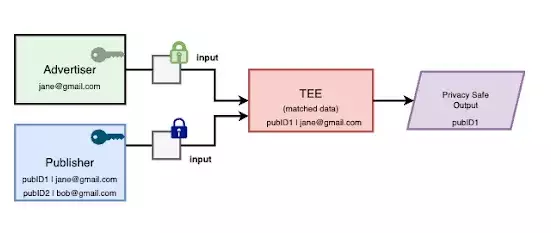In an era where consumer privacy is paramount, Google is exploring innovative solutions that balance user privacy with the necessity for effective advertising. The tech giant has introduced a new system called “confidential matching” within its Google Ads platform. This initiative aims to merge Google’s analytics capabilities with businesses’ first-party data while safeguarding consumer information. The goal is to refine audience targeting without compromising on privacy.
Understanding Confidential Matching
Confidential matching leverages advanced technology known as Trusted Execution Environments (TEEs). These secure processors allow for data to be analyzed without exposing personal information. By encrypting datasets before processing, Google ensures that sensitive information remains inaccessible even to those who manage the main systems. The confidentiality this process provides not only protects consumer data from external threats but also minimizes the risk of misuse by insiders.
The implications of this approach could significantly enhance the way businesses interact with their audiences. By utilizing confidential matching, companies can harness Google’s insights while maintaining strict data security, creating a win-win situation. Google asserts that this technology can offer advertisers a default setting for Customer Match, requiring no additional steps from their side, thereby simplifying the process of data utilization.
Despite Google’s forward-thinking initiatives, the company has faced various hurdles in establishing a truly privacy-compliant advertising ecosystem. The much-anticipated phase-out of cookie tracking in Chrome, initially set for 2022, was repeatedly delayed due to industry backlash and regulatory scrutiny. Most notably, the decision to halt the cookie rollout entirely highlighted the complexities of implementing sweeping changes in data handling practices.
Google’s decision to pivot away from its original cookie strategy towards more adaptable solutions showcases its commitment to developing systems that respect user privacy while delivering effective advertising capabilities. The introduction of confidential matching suggests an evolving strategy that prioritizes privacy without sacrificing the effectiveness of ad targeting.
As digital advertising evolves, the intersection of user privacy and marketing effectiveness stands to shape the industry’s future. For many marketers, the technical complexities of confidential matching may seem daunting; however, the principles behind it represent a significant advancement towards more responsible data practices. By facilitating better audience targeting through secure data processing, confidential matching aims to ensure that businesses can still reach their desired audiences relevantly and ethically.
While these technical enhancements may pass under the radar for some, their potential impact on advertising strategies is profound. The evolution of methods like confidential matching not only addresses current data privacy concerns but also sets a precedent for a more structured approach to data management. As businesses adapt to these changes, they will be better equipped to navigate the intricacies of modern advertising in a way that respects consumer expectations and regulatory demands.
Google’s confidential matching initiative represents a noteworthy shift towards an advertising landscape that prioritizes privacy without losing sight of effectiveness, steering the industry into a more secure digital future.

